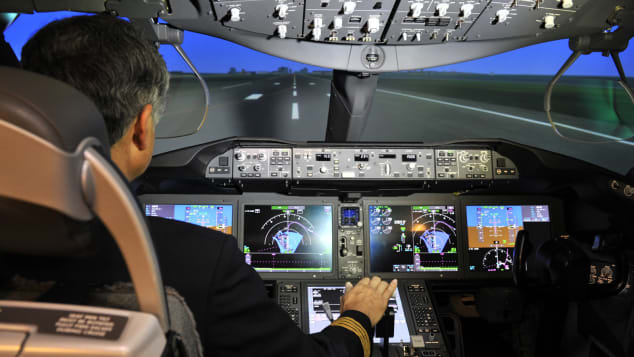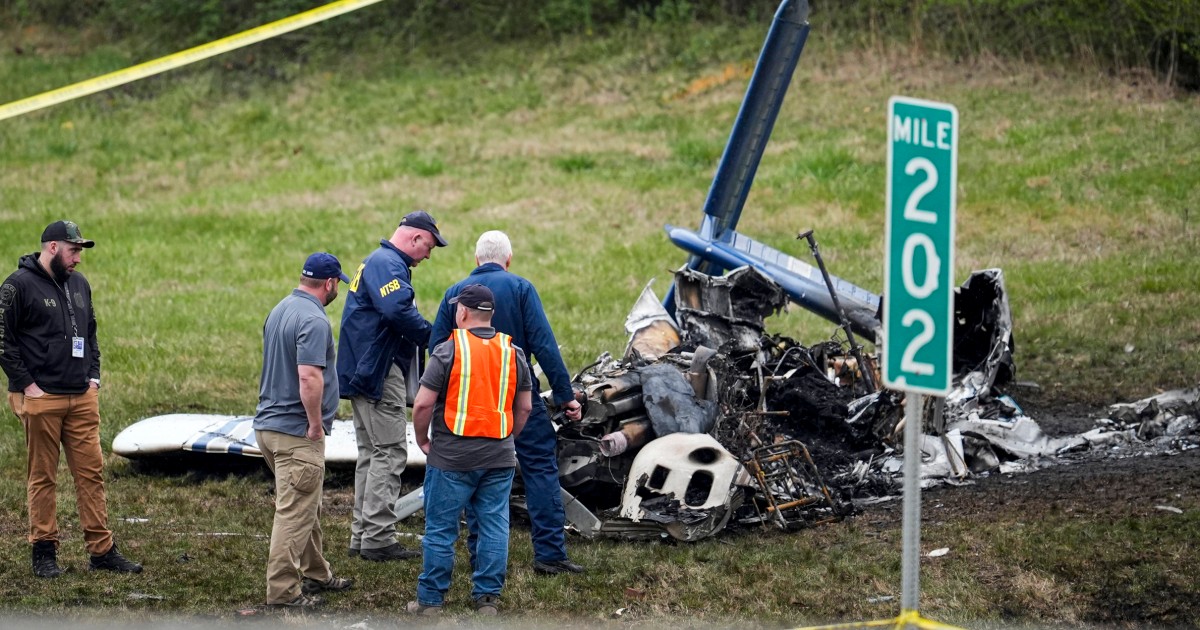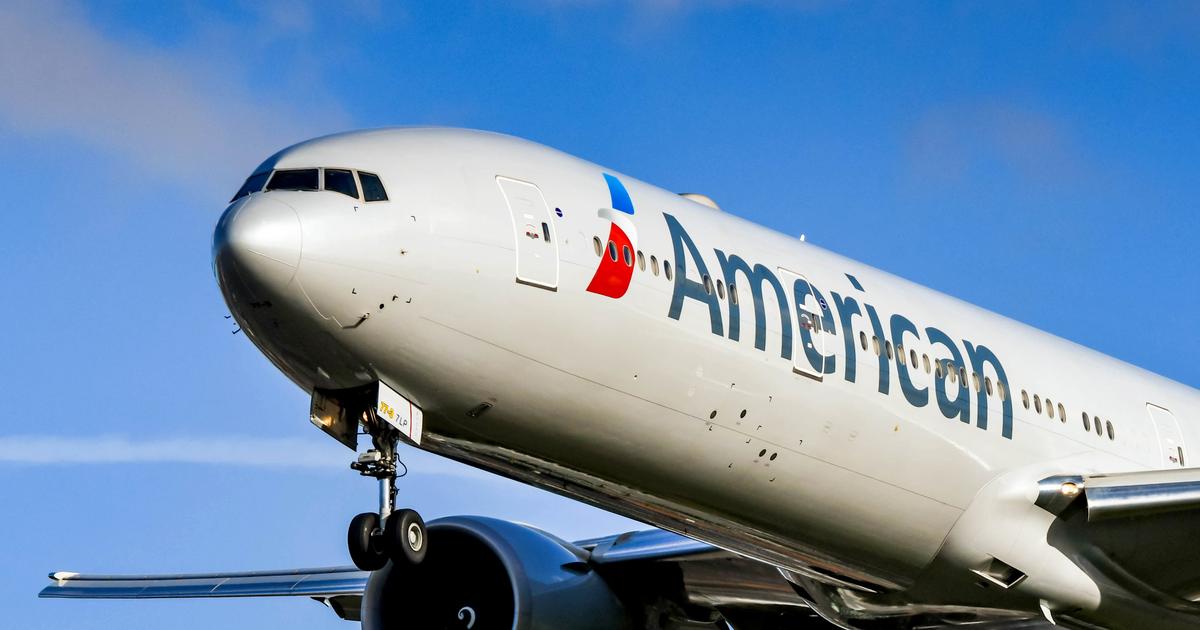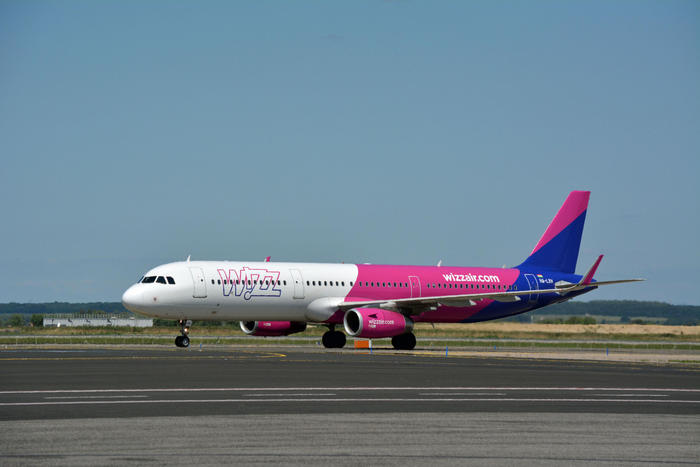The tense moment a passenger lands a plane 1:41
(CNN) --
It's a nightmare scenario: The pilot of your flight is incapacitated and someone has to take his place and land the plane.
Could you do it?
If your name is Darren Harrison, the answer is yes.
The pilot on his flight from the Bahamas to Fort Pierce, Florida, in early May had "become incoherent," leaving the single-engine Cessna 208 plane with no one in command.
But with radio help from certified flight instructor and air traffic controller Robert Morgan, Harrison landed the plane almost perfectly at Palm Beach International Airport.
A passenger with no flying experience landed a plane at a Florida airport after the pilot became incapacitated.
The incident is just the latest in a string of similarly successful "assisted" landings, in which a passenger landed a plane safely with the help of someone on the ground or another aircraft.
In 2019, flight student Max Sylvester landed a plane in Western Australia during his first flying class, after the pilot lost consciousness.
In 2013, retiree John Wildey, who had served in the air force but not as a pilot, safely grounded a plane in the northeast of England, in the dark and after several failed attempts.
And in 2012, in Wisconsin, 80-year-old Helen Collins, who had some experience as a pilot, successfully landed the plane her husband was flying before he fell ill.
There is a common thread in these events: they all involved Cessna aircraft.
These small planes are the best option in flight schools, as they are robust and relatively intuitive to control, which is why they have become popular with flying enthusiasts.
Most importantly, they only need one pilot, while larger planes have two (or more, in the case of long-haul commercial flights that employ crew rotation).
If one of them becomes incapacitated, the other simply takes over.
In 2009, a Boeing 777 landed safely after one of the pilots died midway through a transatlantic flight and the remaining two took over.
advertising
Air traffic controller narrates landing of inexperienced passenger 6:24
A chilling precedent
According to Douglas Moss, an FAA-certified flight instructor and former United Airlines pilot, while it's very difficult to land an inexperienced plane, it's definitely possible if certain conditions are met, such as prove the above events.
First, a motivated person who realizes that he is in a life or death situation.
Second, the help of a radio flight instructor to guide you through each step.
And finally, some natural talent for controlling a mechanical device.
"For example, being able to quickly adapt to and understand the relationships between the aircraft's flight control devices, such as the rudder and throttle controls, and their aerodynamic responses," says Moss.
But if any of these conditions are missing, he adds, things can get ugly.
However, on larger aircraft, such as passenger planes, even this optimal scenario could fall short, according to Patrick Smith, an airline pilot who flies Boeing 767s and author of the popular book and blog "Ask the Pilot."
Smith believes that a person with no flying experience taking the controls of a high-altitude commercial airliner would have no chance of success.
"A person who is not a pilot would not have the slightest idea how to operate the communication radios, much less how to fly and land the plane," he says.
Most of the emergency landings made by unskilled people happened in Cessna light aircraft.
Credit: Lindsey Parnaby/AFP via Getty Images
No passenger has ever landed a commercial airliner, but that's mainly because no one has ever had to try.
"The closest real-life example happened several years ago over Greece, when a flight attendant, who was also a student pilot, took over the controls of a 737 after the rest of the crew and passengers were incapacitated due to a pressurization failure. He couldn't do anything, the plane ran out of fuel and crashed," says Smith, referring to the crash of Helios Airways Flight 522 in 2005, which killed all 121 people on board.
The flight attendant, Andreas Prodromou, had remained conscious using a portable oxygen tank, but was only able to access the cabin minutes before the engines shut down.
A slightly more favorable scenario would be one in which the aircraft is already configured for landing and aligned with the runway, rather than at cruising altitude.
"The odds are still very much against it, but the results would vary from person to person and aircraft to aircraft," says Smith.
"Where, exactly, is the plane from the runway in terms of altitude, distance and speed? And how accurate are this person's interpretations of what the plane is doing? A lot of this also comes down to luck." .
Does trust help?
A full flight simulator offers a useful test of whether a plane can be landed.
Credit: Yoshikazu Tsuno/AFP via Getty Images
What about flight simulation programs, like the popular Microsoft Flight Simulator?
They could give you an advantage, says Smith.
"A skilled enough hobbyist could save the day. But even the most advanced hobby simulators aren't totally realistic. It's all in the details: there are switches, sequences, and system quirks that you don't really see in them, but could make a life or death difference in the scenarios we're talking about.
For anyone who wants to plan ahead, the Internet is full of resources on how to land a plane, including an entry titled "How to Land a Plane in an Emergency" from the popular wikiHow instruction guide, as well as detailed video tutorials.
It's hard to say if they can actually increase your chances, but they can certainly help you become more confident.
A psychological study from the University of Waikato in New Zealand shows that simply watching a four-minute YouTube video of two pilots making an emergency landing in a mountainous area makes people suddenly feel more prepared to do it themselves.
"Despite telling us that they know landing a plane takes a lot of skill, people who watched the video were 28.6% more confident in their ability to land a plane without dying, relative to people who didn't." says Kayla Jordan, one of the study's authors.
Three hospitalized after commercial plane landing gear collapsed at Miami International Airport
This is due to the fact that when novices learn only a small amount about a complex task, Jordan says, their confidence in their performance increases rapidly, a phenomenon known as the Dunning-Kruger effect.
In the study, this confidence bias appears to be worse in men than in women.
"Regardless of whether they watched the video or not, we found that men were more confident in their ability to land the plane than women, by about 12%," says Jordan.
"This finding is in line with existing work that has found that men tend to be more confident in their knowledge and skills than women, even in a high-risk environment such as racing or competitive diving."
According to Patrick Smith, there is a simple way to test this misconception and accurately determine whether a novice can actually land a passenger plane: use a professional flight simulator, the kind airlines train their pilots with.
"Put a person in a true full-motion airline simulator at 35,000 feet, unassisted, and watch what happens," he says.
"It won't be pretty."
emergency landing passengers









